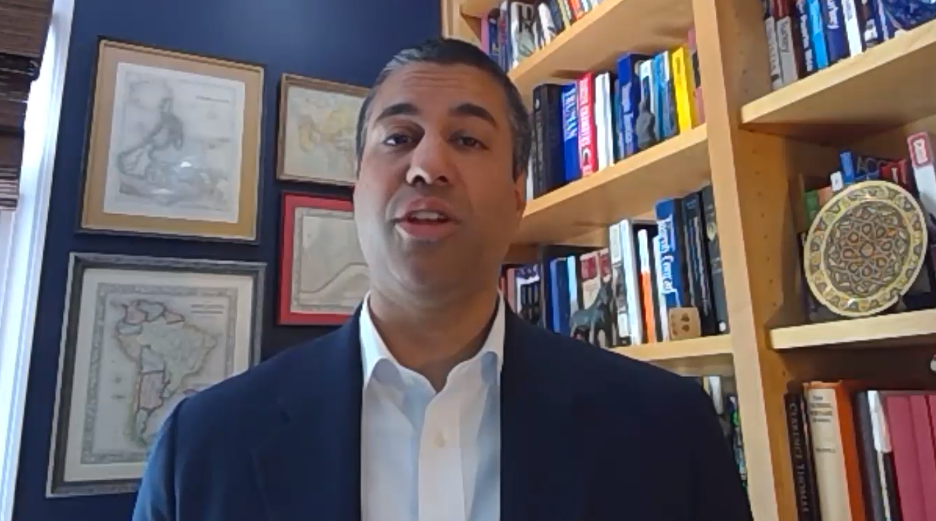FCC Station Repack Closes (Sort of) With Group Hug
FCC praises broadcasters, who praise FCC staffers and carriers

The smarter way to stay on top of broadcasting and cable industry. Sign up below
You are now subscribed
Your newsletter sign-up was successful
The FCC's repack of close to 1,000 TV stations drew to a close, sort of (see story here), Monday (July 13), but on a note very different from when the FCC first started working on the broadcast incentive auction following a congressional mandate to do so back in 2012.
At that time, broadcasters feared the FCC was pushing them to the dustbin of history in favor of wireless carriers, and with some reason. At least one high-ranking FCC official had suggested privately that if broadcasters didn't give up enough spectrum the FCC could simply reclaim the licenses for a higher, better use--wireless broadband.
Related: FCC Says Repack Is on Track
But Monday, the July 13 deadline for the reclaimed spectrum to be in the hands of wireless operators, it was something of a mutual admiration society, with broadcasters looking at new life through the ATSC 3.0 transmission standard and praising the FCC for how it handled the repack and the cooperation of carriers in freeing up the spectrum. That was fully on display at an American Consumer Institute webinar on lessons learned and achievements recorded during the 39-month repack.
In introductory remarks, FCC Chairman Ajit Pai called the repack a "remarkable success story" and praised the cooperation among wireless carriers--particularly T-Mobile, which paid broadcasters to move off spectrum early; broadcasters, who he said remain vital communications outlets, equipment suppliers and tower crews and the FCC staffers working to make the auction and repack a success.
All those pitched in on an effort he said was hardly a flip of the switch, a click of the mouse, or the stroke of a pen, citing labor shortages, tight deadlines and a pandemic for bad measure.
Related: FCC Says Wireless Has Access to All Incentive Auction spectrum
The smarter way to stay on top of broadcasting and cable industry. Sign up below
"Multiple surveys have shown that local broadcasters are the most trusted source for news about the coronavirus pandemic," said Pai. "The successful repack, plus the fact that only 41 broadcast stations nationwide sold their spectrum assets and went off the air after the incentive auction, means that local TV stations have been there for their communities when their communities have needed them most."
While over four times as many stations (175) sold their spectrum in the auction, all but those 41 struck deals to keep their signals on the air by sharing spectrum with another station.
Pai singled out Incentive Auction Task Force head Gary Esptein and current task force Chair Jean Kiddoo and Deputy Chair Hillary DeNigro for their "deep commitment" to public service.
Pai had a special shout out for tower crews. Pointing out that he had climbed a 131-foot tower, he called that height "a rounding error for some of the tall broadcast towers that you climbed." He said that no group has done more on the ground and in air to make the auction and repack a success.
He thanked the carriers for investing billions in the spectrum, and members of Congress who gave the FCC the authority to conduct the auction. One of those key players, retiring former House Energy & Commerce Committee Chairman Greg Walden (R-Ore.), introduced Pai's remote address to the webinar audience, said there had been no more aggressive leader on making spectrum available for the buildout of broadband and winning the race to 5G than Pai.
Despite predictions that the auction and repack would be a disaster and the end of free-over-the-air broadcasting, viewers did not lose much programming--those 41 stations that went off the air, said Kiddoo. She called it a "win win win win" scenario, with broadcasters getting capital to invest, the public getting more wireless, only 41 stations going off the air, and over $7 billion going to deficit reduction from the auction.
National Association of Broadcasters executive VP Rick Kaplan said they were lucky to have the right person in the job at the right time, referring to Pai. He said the FCC's bureaus had contributed to a great job on an incredibly difficult process for broadcasters. He also had glowing things to say about T-Mobile for stepping up to work with broadcasters and move quickly to start using the spectrum, which the FCC has said needed to be freed up ASAP. He praised the tower workers for an unheralded job taking big risks as safely as possible to get that job done, though he added that job was not yet done.
That end of the repack for broadcasters is when they are fully transitioned, including the stations currently on temporary channels and those who needed extra time due to extenuating circumstances--weather, supply chain, pandemic.
Contributing editor John Eggerton has been an editor and/or writer on media regulation, legislation and policy for over four decades, including covering the FCC, FTC, Congress, the major media trade associations, and the federal courts. In addition to Multichannel News and Broadcasting + Cable, his work has appeared in Radio World, TV Technology, TV Fax, This Week in Consumer Electronics, Variety and the Encyclopedia Britannica.

